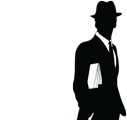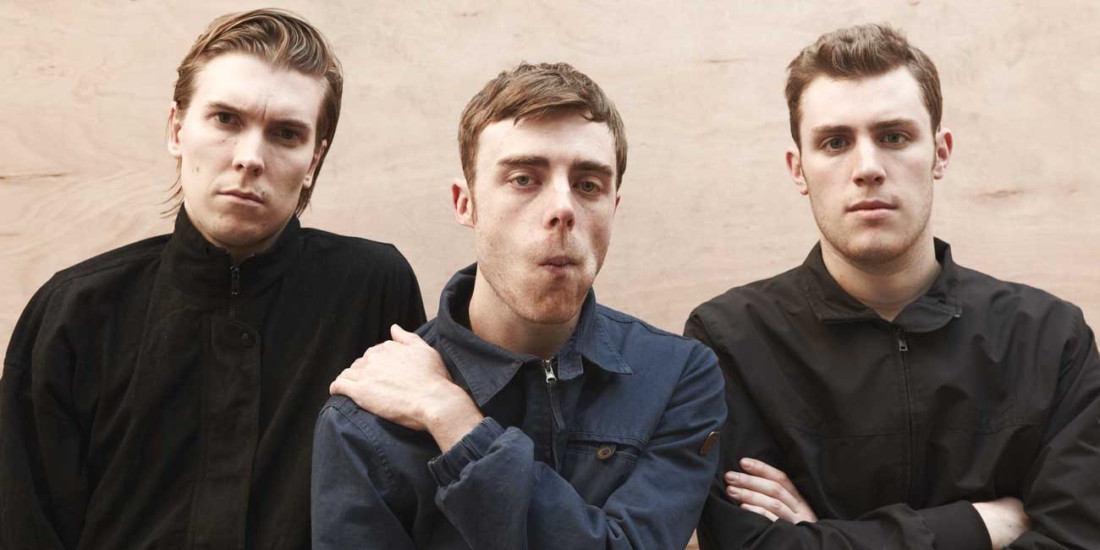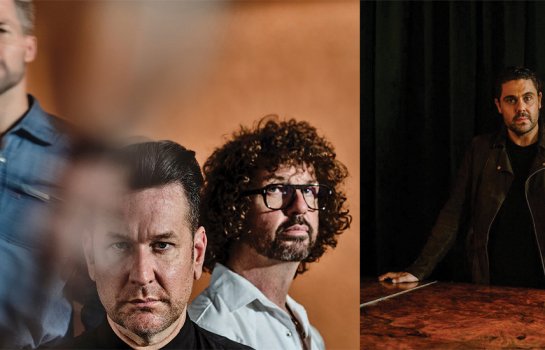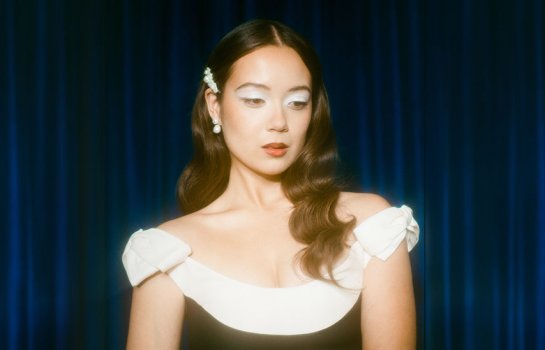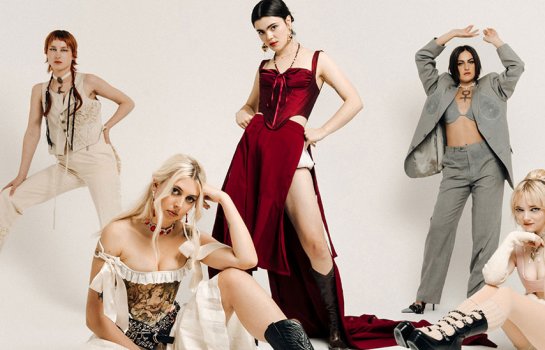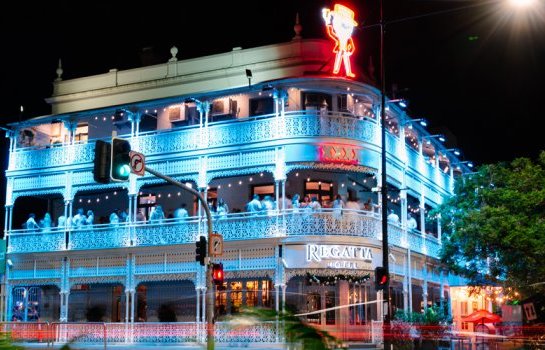Alex Cameron, Seekae
There's a way to do hard work and enjoy it ...
It’s not often an interview involves not only speaking to your subject of interest, but also their mum. But so it was when The Weekend Edition chatted to Seekae vocalist and percussionist Alex Cameron last week. The musician was kicking back in the sunshine at his parents’ place in Sydney, reflecting on his childhood and musing over what might unfold at the band’s upcoming slot at St. Jerome’s Laneway Festival, when the interview took an interesting turn. It was at primary school and high school respectively that Alex met his future bandmates George Nicholas and John Hassell, but it wasn’t until a chance meeting years later that the three formed a band that would become known as Seekae. Three albums and a string of international gigs later, the Sydney lads have refrained from sticking to the same old formula but instead have continued to develop their sound as the years have passed. Before ambling on to the Laneway Festival stage in Brisbane this weekend, the solo musician and member of Seekae filled us in on the stresses and myths of being part of the music industry.
How comfortable do you feel on the stage? You always seem so calm and composed …
It changes. Sometimes I’m desperately nervous and I can’t explain why, I just have to tell myself to stop. It overwhelms. Other times, it just feels right. What’s the point of stressing about it, you’re here now. I know what I’m doing, I hope the other guys in the band know what they’re doing – you’ve just got to trust each other and do it. It’s where I get my satisfaction from now, so without it I get a little restless. I try to play once a week or every two weeks – not necessarily with Seekae but also solo. I like to play as much as possible, for money and rent, but also just because it’s an exercise and there’s always room to improve. Right now, I’m just working hard and trying to find new ways to sing songs and figure out things that I otherwise wouldn’t get a chance to.
Can you remember the first time you performed for an audience?
Yeah, I was always excited by the idea of telling a story or being a person who wasn’t necessarily the centre of attention but just contributing to the entertainment. As a kid, I wasn’t concerned about being in the limelight, I was more concerned about being part of something that was ‘good’. From a very young age, about seven or eight years, I used to write skits and then I’d give each person a line and we’d perform them. I was really drawn to it naturally, I probably should have tried to study it, but by the time I got to high school I was playing instruments. I’m very interested in dialogue and that was what I was drawn to as a kid. I used to do these weird little plays with twists – I don’t know where I got them from … but that’s the first thing I did publicly I think.
What more can you tell me about what you were like – or think you were like – as a child.
My memory is one of me being quite an introvert, I suppose. My parents would put albums into our ten-stack CD player and it would play on random; I’d just sit on the carpet and listen to it. I was very inside myself and I’d find ways to make toys, like I’d tie towels together to make the figure of a person and I’d control them – kind of odd stuff really, when you think about it … My sister would always tell me to shut up because I’d be making all these noises, like footsteps or explosions or dialogue. I had a very, very vivid imagination and it would consume me entirely. Hey my mum is here right now, I’ll ask her what she thinks … I’ll put her on.
Alex’s mum: He was just a really easy, adorable boy. He was very creative and imaginative – he was always in a world where he was imagining or visualising something. You could tell he was away. I’d ask him to write a book or put it in a drawing but he was only interested in imagining it or acting it out. I just wanted to get some feedback of what was happening inside that brain!
Thanks for that, Alex.
Alex: Yeah she’s a sweetheart, my mamma. I love her to bits.
Now what about in your later years – if you could have given your teenage self any advice about life, what would it have been?
I never felt like I was totally misguided, so I wouldn’t change a lot about my teenage years. But I think you have to mean what you do – it has to be true, it has to be real, it can’t be for the sake of someone else, whatever you’re doing. If you’re trying to document something, it can’t be self-serving – it has to be true at the cost of anything, like comfort or reputation. I think I was a bit concerned with my reputation as a teenager; I held back a bit …
Can you remember how you felt when Seekae released its debut album, The Sounds of Trees Falling on People? Was it scary to let it go, or were you too excited to care much about what people thought?
We always had a bit of recklessness. The music wasn’t reckless, it was delicate, but our attitude was very DIY, very like “who gives a shit if anyone hears it anyway”. But I used to be really excited about that security, I was like cool, I hope no-one hears this. I was never that concerned with gaining instant success because I didn’t feel ready for it. Of course I remember being excited when radio stations started playing our music and all of a sudden we were selling out shows. We were still figuring out how to make the music and all of a sudden there were people around the block trying to buy tickets for it. We were 17, 18 years old at the time so we were still figuring it all out. We’ve been releasing records since 2008 and people are still allowing us the freedom to experiment – and I still feel like we’re not where we’re going to be eventually as musicians. There have been people who have said “I wish they didn’t do this or do that” but I’m excited by that – I’m excited to have people challenge what I’m doing because I anticipate that I’ll develop. It’s really exciting to be making music and releasing it.
Seekae will be in Brisbane this weekend for St. Jerome’s Laneway Festival, who else on the bill are you keen to check out?
Quite a few! The first that comes to mind is Connan Mockasin; I’ve been a big fan of his record for a while and I’m excited by the idea of getting to see him play. I’d never try to replicate what he does, which is kind of why I’m excited to see him – I’m not tainted by my desire to rip him off. I haven’t seen Mac DeMarco either, I’ve heard a lot of things about his live show, and I’m excited to have Caribou on the bill. I haven’t listened to Flying Lotus much in the past couple of years but I’d definitely check out a show of his, just to get a gauge on it and understand it more … or maybe understand it less. I’d also like to see FKA Twigs because she’s someone who’s spoken about so much, so you have to at least stick your head in. A friend of mine plays with Eves The Behavior and I don’t know much about her but I’ve heard she’s super young and super talented, so I’ll definitely be watching one of her sets.
Is it a relief to play festivals like Laneway where you can share the responsibility and don’t have to worry about ticket sales, or does it take away from performing live when you’ve got some people in the crowd who might not know you?
I just enjoy playing – I’ll play for anyone, any sized crowd. With a festival like Laneway, the stress is displaced from where it normally is when you’re playing your own show – as you say, there’s certainly no concern from me about ticket sales, I’m doing my part. But I have no idea if people are even anticipating our show – you never know until it’s happening, and there’s always the chance that no-one’s going to be there. It’s more about chasing a positive experience than necessarily more money. I’m excited because I like the tour and I like what I’ve seen so far – I’m just happy to be part of it and hopefully I can get some sort of satisfaction out of playing – that would make it perfect.
What would you say is one of the biggest myths about the music industry?
I’ve found a lot with the people close to me – and it’s always been a huge cause for argument – that idea that musicians get to have all the fun. Yeah sure we end up drinking and laughing hysterically and to us it’s all one big sham because we’re just creating something and people like it and that seems like a rip-off somehow, but ultimately it’s because we work hard at it that we get to do those things. You can’t say that something that took seven years came easy. People get off saying that hard work is work that is unenjoyable – and that has a sense of truth as well – but the other aspect is there’s a way to do hard work and enjoy it. The biggest myth I’ve come across is people constantly saying to me “it must be the biggest party” and when I come back from tour I get asked how the holiday was … I just did 30 shows in 40 days, it wasn’t really a holiday! I enjoy it, but it’s work and I love that it’s work and I wouldn’t want it to be any other way.
If you could choose one artist to cover any track by another artist, who and what do you think you’d choose?
I’d like to hear Randy Newman on piano, with a band maybe, covering ‘Ain’t No Cure For Love’ by Leonard Cohen. I think that could work. It sounds a bit weird now that I think about it … But it could be beautiful.
What’s your personal definition of success?
I’m long dead and people still listen to my music.
